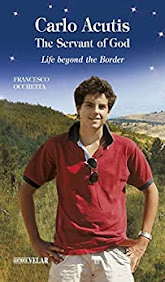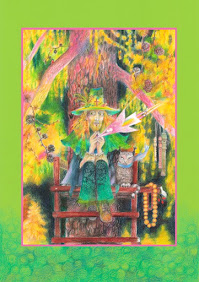An excellent review of New Moon for anyone who wants to take this cultural phenomenon seriously.
by James Walling
Staff Writer for The Prague Post
by James Walling
Staff Writer for The Prague Post
Perhaps much of the muddled religious subtext in the latest installment of the Twilight Series will be lost on the largely atheist and agnostic Czechs. But religious attitudes about sex are what lie at the core of this second film adaptation of Stephanie Meyer's wildly successful series of novels for young adults. New Moon is more absurdly obsessed with sex (or rather, the lack thereof) than ever.
Opening with some pseudo-poetic drivel about "violent delights" and "violent ends," New Moon follows the couple and their respective networks of families, friends, enemies and would-be lovers during the female protagonist's senior year in a small town in Washington State. This stage of the saga is primarily concerned with the difficulties of loneliness and depression resulting from the Vampire's decision to temporarily break off the affair. Enter a swarthy young suitor (Taylor Lautner) possessed of a dark secret of his own, and we are treated to a brief respite from the gloom and doom before the action picks up a notch and the romance is repaired.
Kristin Stewart is fine as the female lead, and, though I will surely receive the equivalent of a fatwa from the teenage-girl set for saying so, Robert Pattinson as the ostensibly irresistible vampire Edward Cullen is revoltingly unctuous and stiff in his role. Apart from his angular features, Pattinson comes off as some kind of retentive Frankenstein's monster with a penchant for classical music and snappy dress.
More troubling is the way Meyers champions her protagonist's pathological obsession with her possessive, mercurial, controlling, condescending and sexist vampire boyfriend. What sort of message is she trying to send to young women? To equate dominating, patriarchal behavior with devotion and love is as dated a concept as it is an insidious one.
For an author who has repeatedly stated that her favorite reading material is contained in the Book of Mormon, such sentiments are hardly surprising. But it's more than a little disturbing to see the worst sort of conservative values dressed in music-video clothing. Interestingly, the largely Czech audience at Lucerna on the afternoon I attended laughed repeatedly and derisively at the film's attempts at pin-up sex appeal (there is hardly a sequence in the film that doesn't feature at least one bare-chested, chiseled-featured teenage boy).
There is an ongoing debate over how much blatant religious propaganda really exists in the Twilight series. But anyone who doubts the prevalence of the 'no sex' before marriage theme need only sit through the tedious 130 minutes of this film, particularly its laughable (and dramatically ineffective) cliffhanger ending, to be convinced of the author's point of view.
At any rate, whether you're a Mormon or an atheist, a genre fanatic or vampire hater, New Moon is a silly, trifling mess of CGI werewolves, sparkling-skinned emo vampires and deadly dull teen romance.
Not that any of this will make the slightest bit of difference at the box office. New Moon will doubtless be a blockbuster smash.
(Cartoons taken from this witty spoof on the Twilight Saga at Cracked. com.)







 U.S. Catholic Bishops have made a giant leap toward using Communion as their next political weapon,
U.S. Catholic Bishops have made a giant leap toward using Communion as their next political weapon, 





 But why did both events take place on November 17 and not on some other day? Well, both evens are connected. And I will tell you how. It all started on October 28, 1939, which was the 21st anniversary of the independence of the Czechoslovak Republic. On this day there were big anti-Nazi demonstrations in Prague, which were suppressed by Nazi forces – you probably know that Czechs were occupied by Hitler’s Germany back then. One student, whose name was Jan Opletal, a nineteen year old student of the Medical Faculty of the Charles University in Prague, was seriously wounded there and died a few days later. His funeral, attended by thousands of students, turned into another anti-Nazi demonstration. This provoked the Nazis so much that on November 17 they ordered closed all Czech universities and colleges, plus over 1200 Czech students were sent to concentration camps, and nine students were executed.Because of this terrible act, November 17 has been marked since 1941 as International Students Day by the International Union of Students.
But why did both events take place on November 17 and not on some other day? Well, both evens are connected. And I will tell you how. It all started on October 28, 1939, which was the 21st anniversary of the independence of the Czechoslovak Republic. On this day there were big anti-Nazi demonstrations in Prague, which were suppressed by Nazi forces – you probably know that Czechs were occupied by Hitler’s Germany back then. One student, whose name was Jan Opletal, a nineteen year old student of the Medical Faculty of the Charles University in Prague, was seriously wounded there and died a few days later. His funeral, attended by thousands of students, turned into another anti-Nazi demonstration. This provoked the Nazis so much that on November 17 they ordered closed all Czech universities and colleges, plus over 1200 Czech students were sent to concentration camps, and nine students were executed.Because of this terrible act, November 17 has been marked since 1941 as International Students Day by the International Union of Students.















